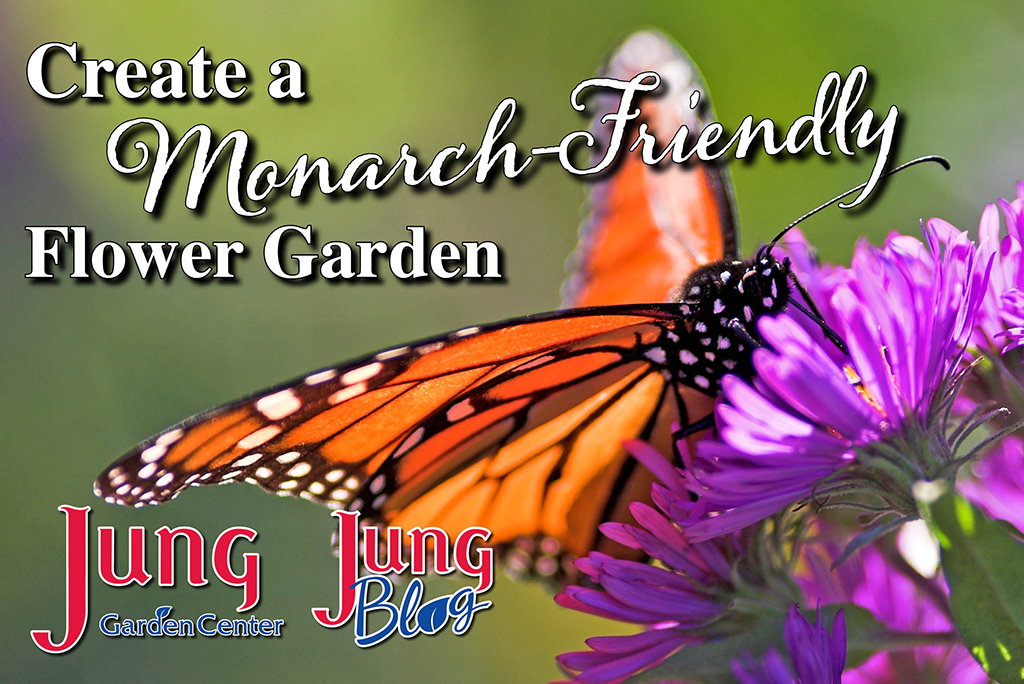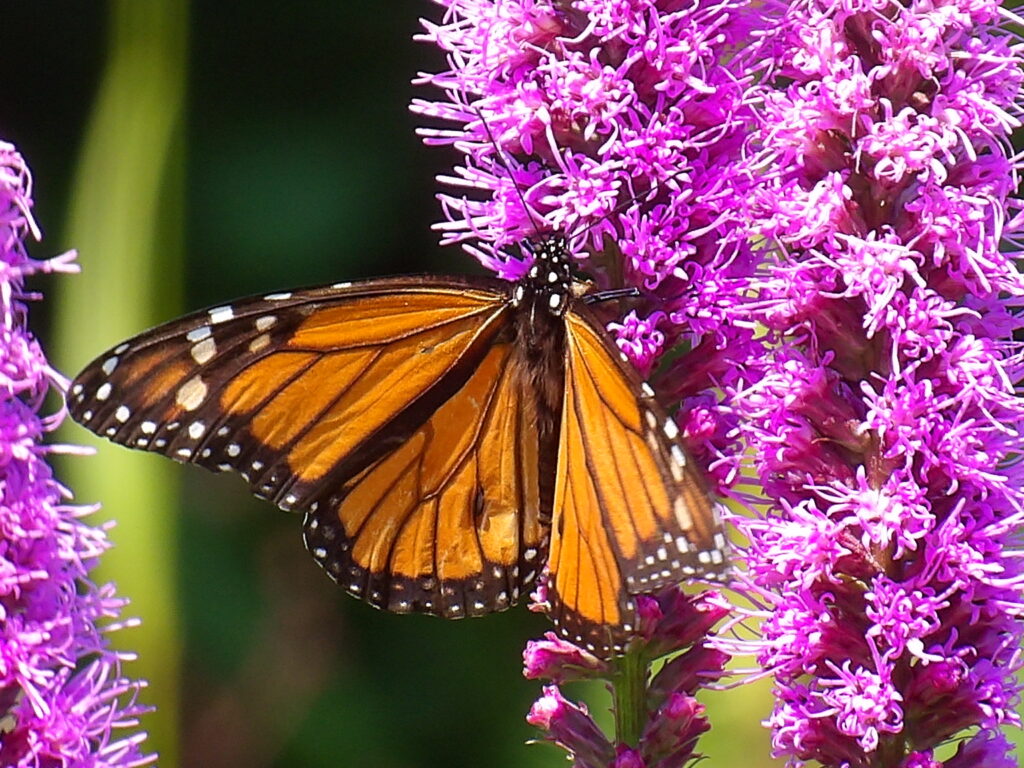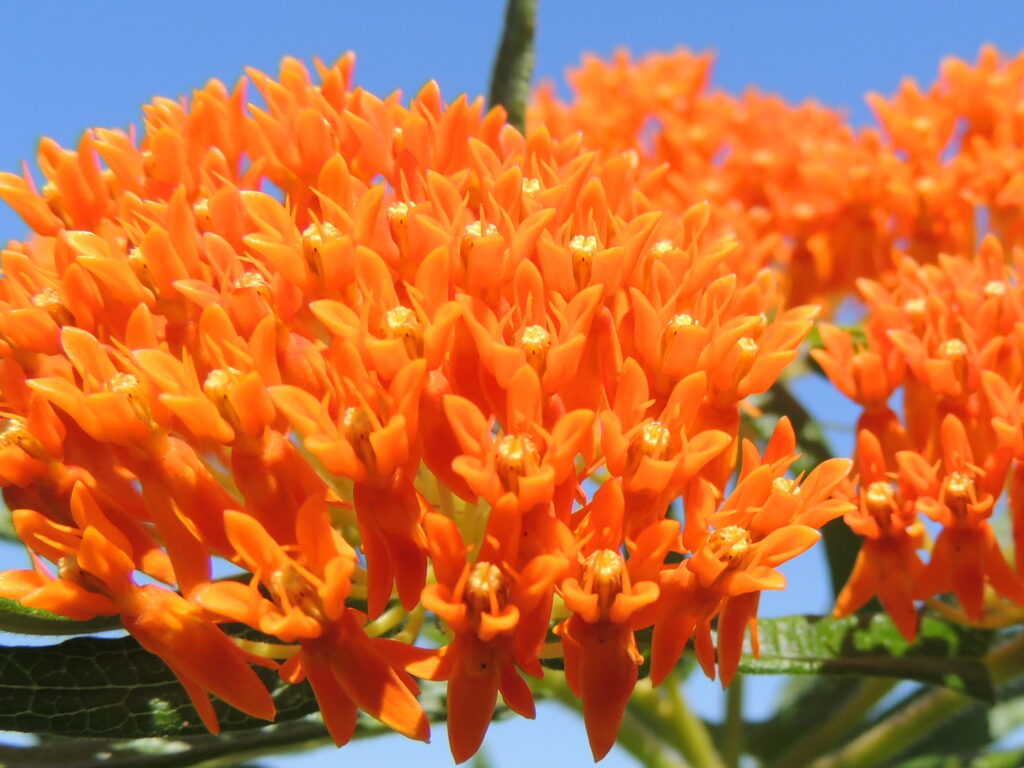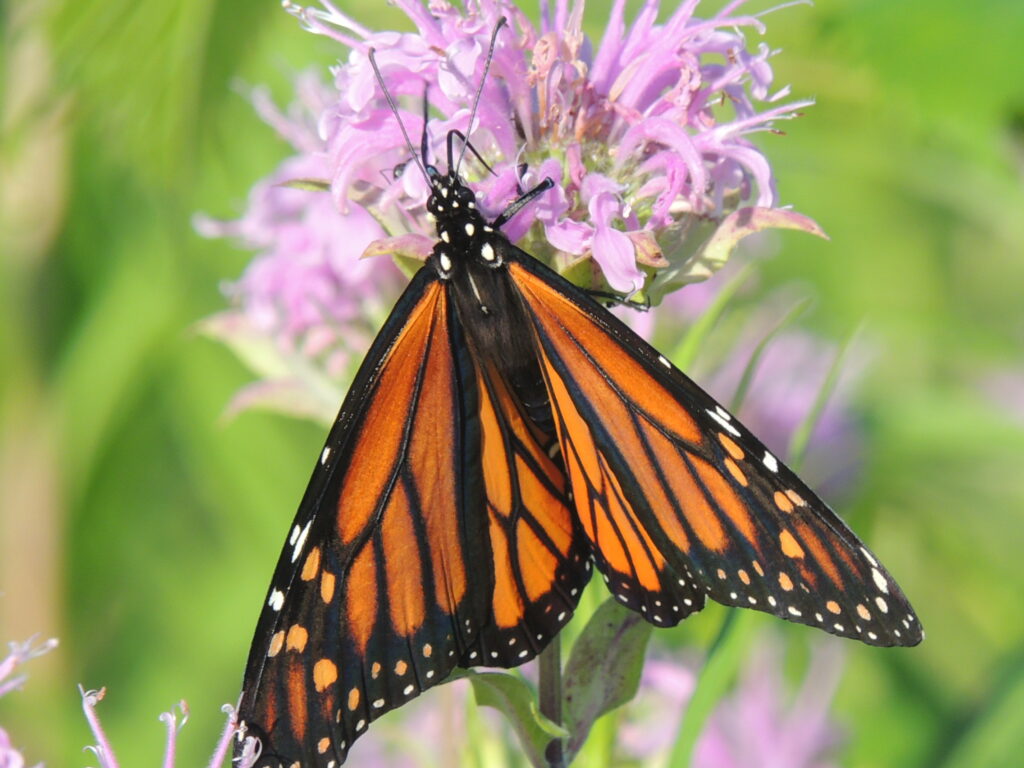
With the recent release of data from monarch colonies on their Mexican overwintering grounds, once again, monarch lovers were hit hard with bad news. From population estimates, monarch numbers overwintering in Mexico last winter have reportedly decreased again.
Monarch lovers here in Wisconsin, therefore, must be more diligent than ever when it comes to planting host and nectar plants to help build numbers over the summer season.

Monarch Population
Each winter, on the cool mountain slopes of interior Mexico, researchers count monarchs as they cling to the trees in large, mostly dormant clusters. Estimates of both population and winter habitat size in acreage are made.

Monarch Habitat Loss
Habitat loss in Mexico is one of the biggest factors in monarch population declines. Each year, more and more of this valuable habitat, located in the mountains of central Mexico, is lost due to illegal logging and development. Combined with the loss of monarchs locally here in Wisconsin and other states due to habitat loss, development, pesticide use, changes in agricultural practices, and other factors, the butterflies are again in decline.

How To Help The Monarch Population
As gardeners and plant lovers, we can do much to help sustain monarch numbers, at least here in our area. By helping to build strong monarch populations here in the Midwest during the summer season, we give the overwintering population a better chance. The more monarchs that make the journey, the more monarchs that hopefully will overwinter successfully and return to the southern states in spring where the population cycle begins again.
Wildflowers
Planting wildflowers is a benefit to monarchs, as well as planting many other pollinators. Providing monarchs with a continual supply of native milkweed and other beneficial wildflowers throughout the season is also vital.
Milkweed
As you may know, monarch caterpillars will only feed on native milkweed species. Therefore, the more milkweed gardeners can provide, the stronger the population will be when migration ends in August and September.
Some of the best host plants for monarchs include Swamp Milkweed, Orange Milkweed, Common Milkweed, and Whorled Milkweed. In addition to these host plants, it is important to provide nectar plants, especially for the late season, August into October, when monarchs are migrating.
Nectar Plants
Late-season native nectar plants include New England Aster, Joe Pye Weed, Black-eyed Susan, Purple Coneflower, and Goldenrod, as well as annual flowers such as Cosmos, Zinnia, Heliotrope, Tall Verbena, Mexican Sunflower, Lantana, and others. By incorporating all of these plants, and others, in your landscape, you give monarchs a fighting chance.

Let’s commit to doing what we can this summer to provide a rich, abundant source of host and nectar plants for monarchs as they arrive in mid-May, breed throughout the summer, and depart in August and September.
Other Recommended Reading

- Bee Kind Gardening – A Guide To Plant & Pollinator Balance
- 6 Gardening Activities For Earth Day
- 7 Tips To Attracting Reptiles, Toads, & Frogs To Your Garden
- 15 Best Plants For Pollinators
- How To Create A Bird-Friendly Garden
At Jung Seed Co, we strive to be your go-to guide for all your gardening needs. Our YouTube channel Jung Garden Center has a variety of videos where our experts provide gardening tips for all levels of gardeners. When you need reliable gardening advice, turn to the trusted experts at Jung.
If you are in the Wisconsin area, please visit us at one of our Jung Garden Center locations for all your gardening needs. Otherwise, you can browse our website. To receive info on new products, exclusive deals, and specials, be sure to sign up for our weekly email. Join our Facebook page, to discuss all things gardening!
About The Author: Rob Zimmer is a Wisconsin-based nature and garden columnist, author, public speaker, and radio host. Find him on Facebook and listen to Outdoors with Rob Zimmer every Friday, 11am-noon on WHBY.